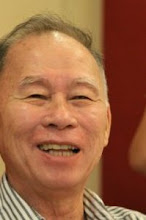Economic freedom: Phl 89th out of 178 countries
By Jose Katigbak, STAR Washington bureau (The Philippine Star) | Updated January 15, 2014 - 12:00am
WASHINGTON – The Philippines scored 60.1 points and was ranked 89th freest country in the world out of 178 rated in the 2014 Index of World Economic Freedom.
In 2013, the Philippines was ranked in 97th place with a score of 58.2 points.
“The Philippines has shown consistent score improvement in the index for a number of years, showing a dedication to reform amongst the country’s leadership,” said Terry Miller, director of the Heritage Foundation’s Center for International Trade and Economics.
“Rule of law continues to be a major concern, as ownership structures remain from the time of President Ferdinand Marcos. Philippine leaders must look to strengthen the rule of law and combat corruption if they want to sustain their score improvements,” he said.
While lauding the Aquino administration’s legislative reforms to enhance the investment environment and incentivize broader-based, private-sector job growth, the report said lingering institutional challenges will not be overcome without a deeper commitment to reform.
It said more effective anti-corruption measures need to be firmly institutionalized. . . . . .
-o0o-
AND THIS IS WHERE WE STAND TODAY. THE AQUINO ADMINISTRATION IS CHALLENGED TO INSTITUTIONALIZE ANTI-CORRUPTION MEASURES.
Where lies the crux of decades old corruption? We all know by now that the core is lodged in the system of pork barrel distribution under the control of trapos and epals in political dynasties.
If PNoy can effectively abolish any form of pork barrel in the government budget (as he is supposed to be doing now), half the battle is won.
The other half lies in driving home the point that it is the duty of every citizen to participate in the governance of his/her own community. If we want to erase the source of corruption in government, let us begin by actively participating in barangay affairs.
In every barangay, it is the barangay captain who takes control of his or her particular barangay through his or her barangay assembly and development council. It is general practice for the barangay captain to choose and appoint the residents of his/her choice to comprise the assembly and council.
We all know that Barangay elections are under the influence of the trapos and epals who are on the bureaucratic saddle. Hence, control of the barangay assemblies is therefore effectively under the incumbent political dynasties - who therefore become the de facto BOSSES.
Since most residents refuse or do not care to vote in barangay elections, the rest of the citizenry are disenfranchised and powerless to curb age-old corruption – effectively diverting hard-earned economic gains from those who need them most.



